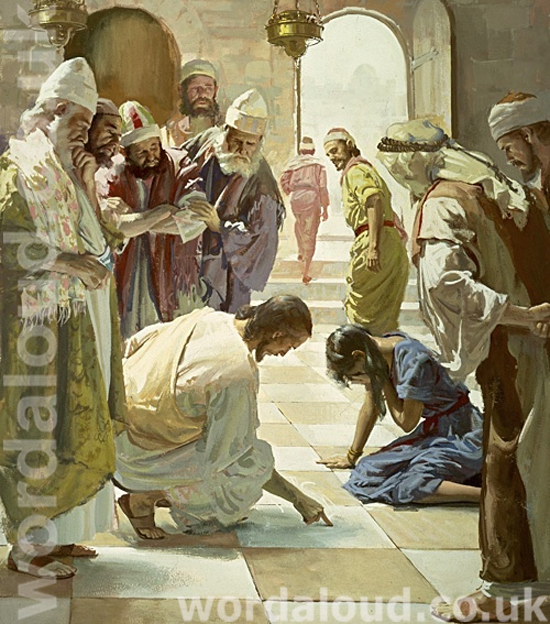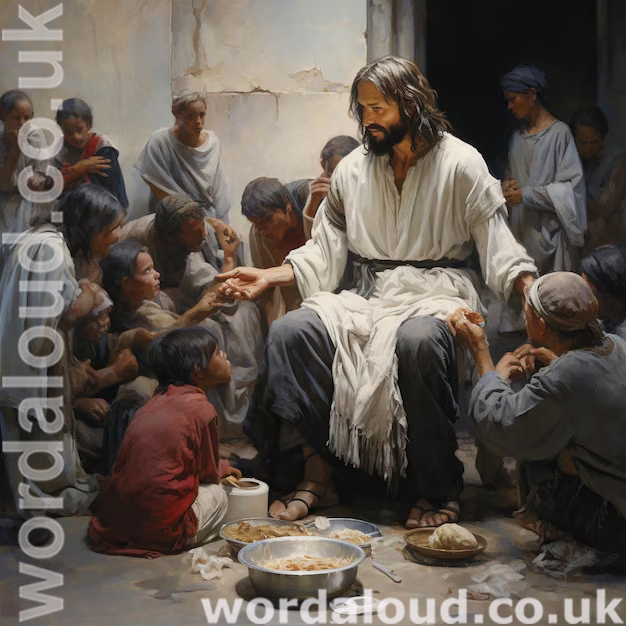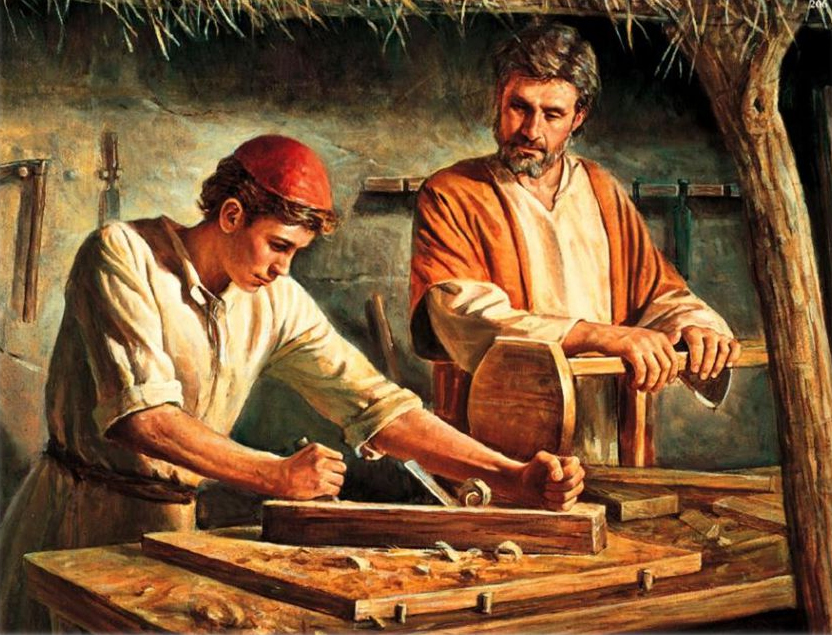Christian Art | Jesus Serves The Poor | Christian Charity
Office Of Readings | Week 31, Tuesday, Ordinary Time | A Reading From The Pastoral Constitution On The Church In The Modern World Of The Second Vatican Council | Gaudium Et Spes | Christian Duty Of Working For Peace
‘The Christian duty of working for peace.’
This passage from Gaudium et Spes moves from principle to application, describing the Christian obligation to promote peace through justice, solidarity, and practical service. The Council presents this not as an abstract ideal but as a concrete expression of discipleship within a world divided by inequality and conflict.
The opening sentences situate peace within the reality of global disparity. The text contrasts nations that enjoy material abundance with those burdened by poverty and disease, identifying in the cries of the poor the voice of Christ himself. The scandal of inequality, especially among Christian peoples, is thus not only a moral failure but a distortion of the Church’s witness. Peace begins with justice, and justice begins with attention to those in need.
The constitution highlights voluntary service as a form of participation in the redemptive work of Christ. It commends the generosity of young Christians and urges bishops to provide leadership through example and instruction. The sharing of resources, even at personal cost, is portrayed as continuity with the Church’s ancient tradition of charity. This is not mere philanthropy but the practical expression of communion — the recognition that the well-being of one is bound to the good of all.
The Council also calls for institutional order in charity. Love, it states, does not exclude prudence; it requires organisation, accountability, and training. The development of systematic methods for collecting and distributing resources — locally, nationally, and internationally — reflects an understanding that peace and justice demand coordination as well as compassion. The Church’s charitable work must therefore be professional as well as spiritual.
A further point concerns cooperation. The Church, as part of the international community, must work alongside other Christians and all people of goodwill. Ecumenical and interreligious collaboration are viewed not as compromises but as expressions of shared responsibility for humanity. The faithful are encouraged to awaken awareness in others, especially through education that links faith to social conscience.
Christians build peace by addressing the structures of deprivation and injustice, by cultivating solidarity across boundaries, and by witnessing to the love of Christ in action. The Church’s mission in the world thus includes the transformation of human relationships through charity ordered toward justice.

A Reading From The Pastoral Constitution On The Church In The Modern World Of The Second Vatican Council | Gaudium Et Spes | Christian Duty Of Working For Peace
Christians should cooperate, willingly and wholeheartedly, in building an international order based on genuine respect for legitimate freedom and on a brotherhood of universal friendship. This is all the more urgent because the greater part of the world still experiences such poverty that in the voices of the poor Christ himself can be heard, crying out for charity from his followers. There are nations – many of them with a majority of Christians – which enjoy an abundance of goods, while others are deprived of the necessities of life, and suffer from hunger, disease and all kinds of afflictions. This scandal must be removed from among men, for the glory of Christ’s Church and its testimony to the world are the spirit of poverty and the spirit of love.
Christians, especially young Christians, deserve praise and support when they offer themselves voluntarily in the service of other people, with bishops giving a lead by word and example, to do all in their power to relieve the sufferings of our times, following the age-old custom of the Church in giving not only what they can spare but also what they need for themselves.
Without being uniform or inflexible, a method of collecting and distributing contributions should be established in each diocese and nation and on a world-wide level. Whenever it seems appropriate, there should be joint action between Catholics and other Christians. The spirit of Charity, far from forbidding prudence and orderliness in social and charitable action, in fact demands them. Those intending to serve the developing countries must therefore undergo appropriate and systematic training.
In order to foster and encourage cooperation among men, the Church must be present and active in the community of nations. It must work through its own public organizations with the full and sincere cooperation of all Christians in their one desire to serve all mankind.
This end will be more effectively achieved if the faithful are themselves conscious of their human and Christian responsibilities and seek to awaken among those in their own walk of life a readiness to cooperate with the international community. Special care should be taken to give this kind of formation to young people in their religious and secular education.
Finally, it is to be hoped that, in carrying out their responsibilities in the international community, Catholics will seek to cooperate actively and constructively with other Christians, who profess the same Gospel of love, and with all men who hunger and thirst for true peace.
Christian Prayer With Jesus
God of mercy and truth,
you call your Church to labour for the unity of humankind
and to bear witness to your peace.
Strengthen in us the resolve
to serve the poor, to share our goods,
and to seek justice in our common life.
Teach us to act with prudence and compassion,
to organise charity with order and care,
and to build partnerships of trust and goodwill.
May the Spirit of your Son inspire us
to recognise in every person the image of your love,
and to work together for the peace that endures.
Through Christ our Lord.
Amen.
Glossary Of Christian Terms
Solidarity: The moral and social principle affirming that all people share mutual responsibility for one another’s welfare, forming a single human family.
Subsidiarity: The principle that social and political decisions should be made at the most immediate level capable of addressing an issue, ensuring participation and accountability.
Charity: In Christian theology, the self-giving love rooted in God’s nature; here expressed through acts of service and material sharing.
Justice: The moral virtue that consists in giving each their due; the social foundation of peace.
Common Good: The total of social conditions that enable persons and communities to achieve fulfilment more easily and completely.
Formation: The process of moral, intellectual, and spiritual education that prepares individuals to act responsibly in society and the Church.
Stewardship: The responsible management of resources, recognising them as gifts entrusted by God for the service of others.
Witness: The visible expression of faith through actions that manifest the truth of the Gospel in public life.
Development: In Catholic social thought, the integral advancement of peoples — material, cultural, and spiritual — that corresponds to human dignity.
Ecumenical Cooperation: Collaboration among Christian traditions in service of shared moral and social aims, particularly justice and peace.







